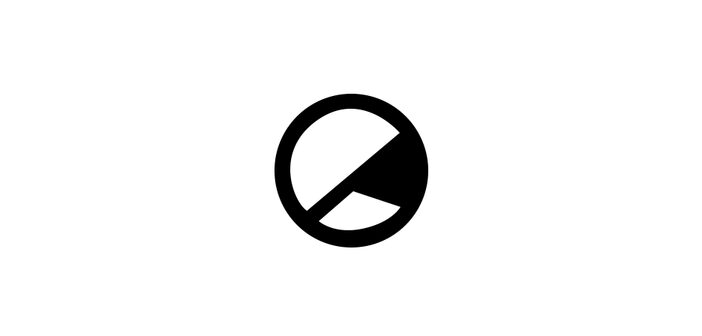Mackie and Stan make an entertaining duo in a more tonally consistent Marvel TV show that lacks both high highs and low lows.
-
6
Chris Evans’ Steve Rogers was the paragon of heroism in the Marvel Cinematic Universe. An amalgam of selflessness, honour and an unwavering sense of loyalty to his friends, Captain America was the perfect moral epicentre for the behemoth franchise. But following the final scenes of Avengers: Endgame where the vibranium shield was passed down to Sam Wilson (Anthony Mackie), Marvel’s sophomore television outing navigates the vacuum left by Rogers’ passing, with mixed results.
Anthony Mackie and Sebastian Stan (the two titular heroes, respectively) have irresistible chemistry. Across their interviews, their banter with Tom Holland and their presence at Comic-Cons, it’s clear the two stars get along a lot better than their characters. Their on-screen relationship as frenemies can probably be traced back to the Russo brothers’ Captain America: Civil War, where Bucky asks Sam to move his car seat forwards. “No.” It’s a classic Marvel moment, but it laid the groundwork for the buddy-cop dynamic that their show has opted for. Director Kari Skogland utilises a similar aesthetic as the Russo brothers, keeping the six-episode series firmly in the same style as the two characters’ previous outings. This therefore means fast, shaky action scenes designed to feel more like Jason Bourne and less like Joss Whedon’s playful set-pieces that prioritised humour over danger. As a Marvel production it ticks the usual technical boxes: a forgettable score, numerous locations across the world, an interconnectedness with other franchises and utterly average cinematography. If it ain’t broke, I guess.
Where The Falcon and the Winter Soldier does work is thematically and with its performances. The stand-out cast member is newcomer Wyatt Russell (son of the mighty Kurt) who plays John Walker, a US soldier who, after Wilson’s disowning of the shield, becomes the newly appointed Captain America. Russell is a great presence as an anti-hero; not quite hissable but certainly untrustworthy and dislikeable as a person. His character is appealing and, for the first five episodes, a curious being to assess psychologically before a rushed ‘arc’ in the finale. The show peaks with the bloody end of episode four and the tidily choreographed warehouse fight that opens episode five as Walker becomes an example of how not to be a Captain America. Furthermore, Mackie and Stan can play their roles in their sleep, but another cast surprise is Carl Lumbly as Isaiah Bradley, an African-American Korean War veteran. His role in the show was a brilliant decision from Marvel as it opens up a new dimension to the racial tensions that come with the black Sam Wilson accepting the Cap mantle. The race debate and Bucky’s PTSD from his brainwashed assassinations are the two main threads, but whilst Bucky feels increasingly side-lined, the questions the show raises are intriguing and commendable to have been included, but in true Marvel fashion it can’t quite hit the landing without coming across as preachy.
Speaking of which, there’s the antagonist. Rumoured to have cut storylines because they were too similar to the coronavirus pandemic (early episodes mention “vaccines”), the foe to fight is Karli Morgenthau (Erin Kellyman) who is part of the “Flag Smashers,” an extremist group who want to return the world to the borderless status that existed in the five years after Thanos disintegrated half the universe (legend). Juiced up on a new soldier-serum that allows its hosts to have all the strength and speed of Steve Rogers but without all those swollen biceps and razor sharp abs, Karli comes across in an insufferable, self-righteous way that recalls the students from my A-level Politics class. She makes an occasionally appealing point, but this vague obsession with “institutions” and “them” becomes tiresome from someone who straight-up murders innocents.
The show’s six episodes clock in at an impressive 50-60 minutes, meaning that it probably is similar to WandaVision length wise despite fewer instalments. But whereas WandaVision used the weekly television format in a creative way to have a new aesthetic each episode, Falcon and the Winter Soldier’s steady tone and elucidative narrative, despite a lot of filler, gives off the feeling that this content could have worked a lot better as a film (especially given the lack of longevity these shows seem to have). And, in true Marvel style, the still recent dramatic and emotional pinnacle of Endgame means there is never a feeling of threat or loss with the characters because the whole purpose of the show is to set up their role in future instalments for the next big cross-over saga. The lengthy epilogue anticipates narrative threads that feel like retreads (bad guys inside good governments again?) and it would have been stronger if the finale had focused more on its satisfying payoff for the first black Captain America rather than undermining the importance of the moment with standard franchise sequel-baiting.
All episodes of The Falcon and the Winter Soldier are available to stream on Disney+. You can watch a trailer below.




